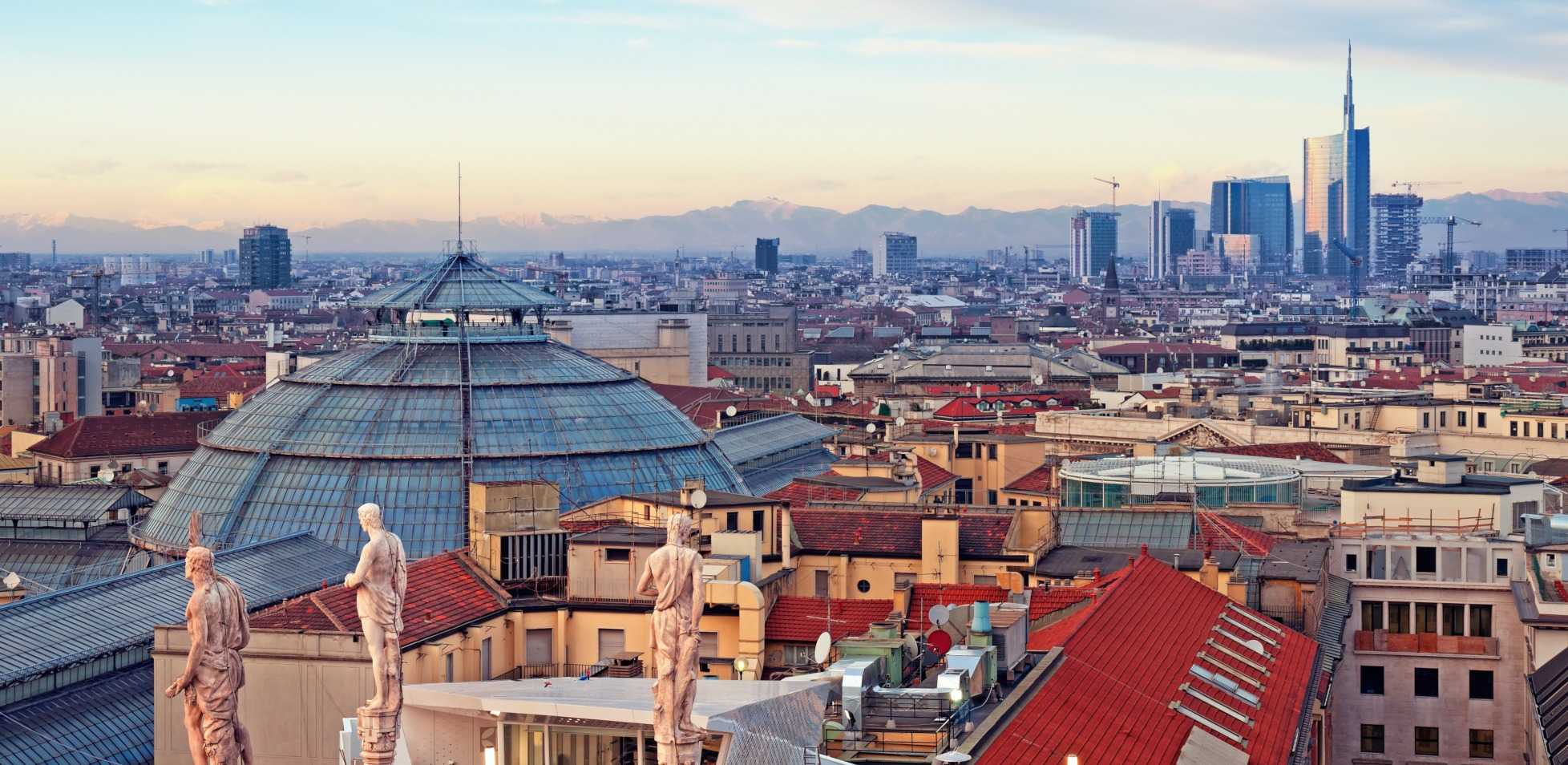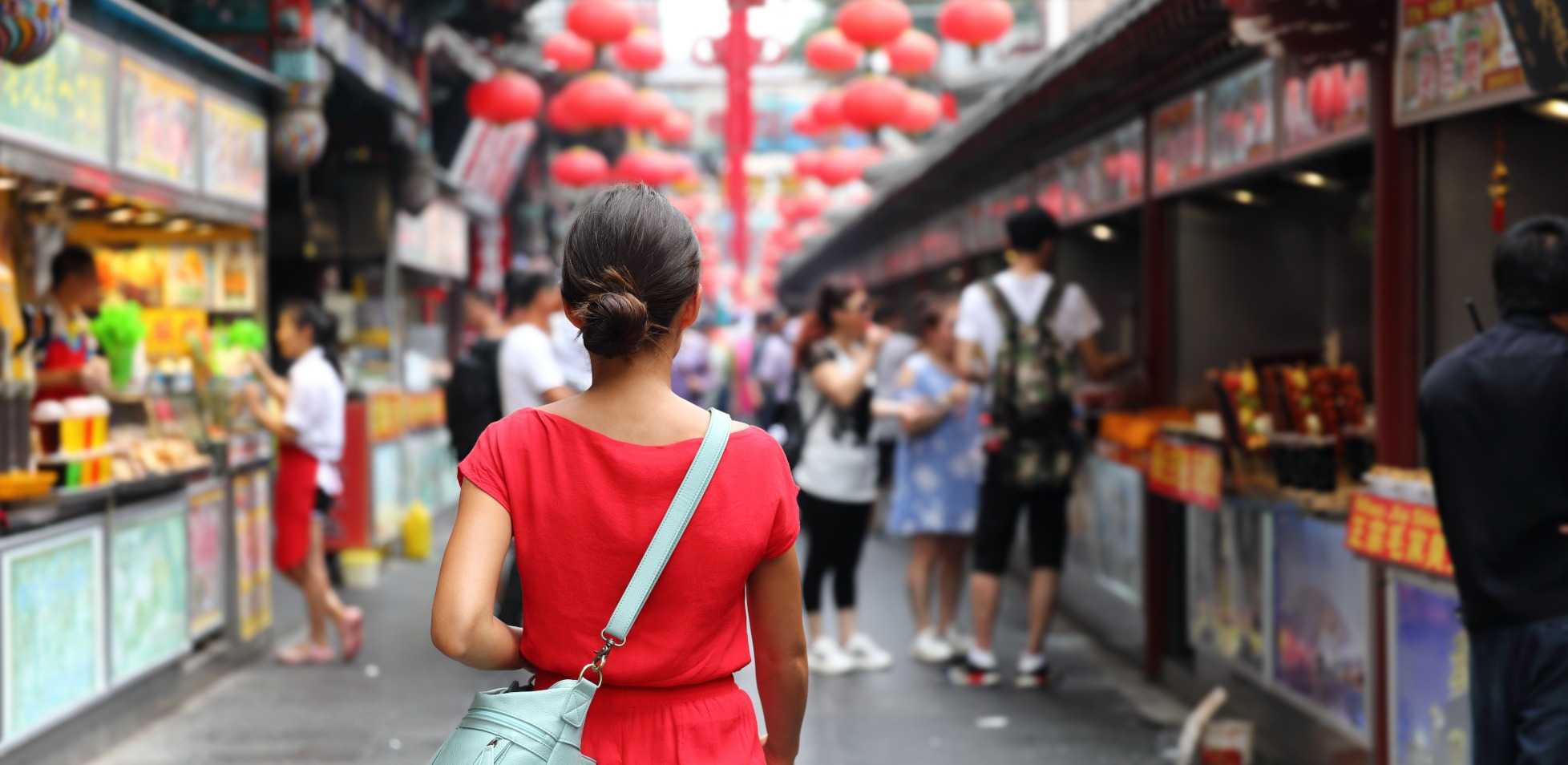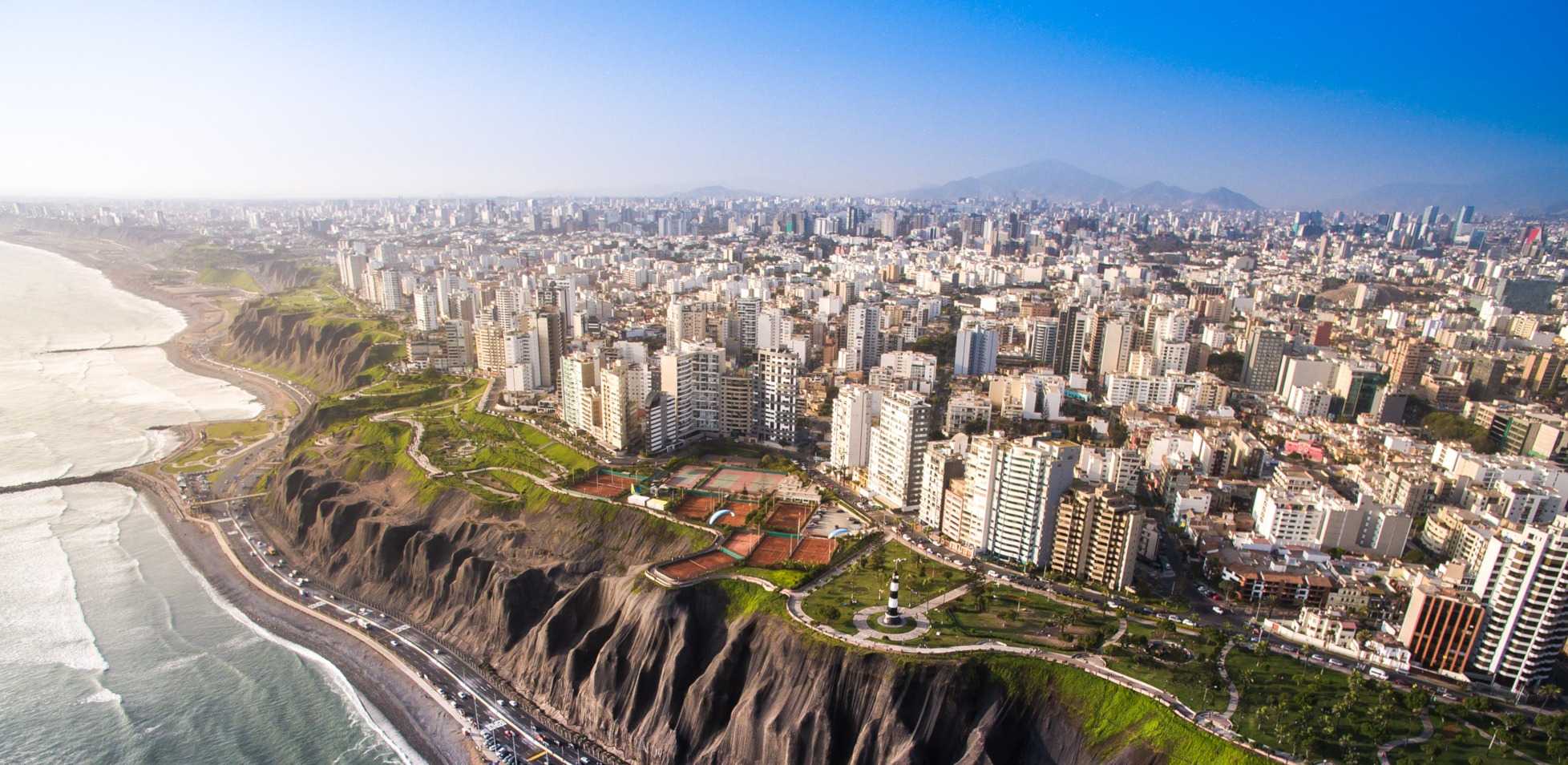Conversations on Day-to-Day Expat Living
This rather unique Expat Experiences entry is a series of interviews by two long-term travelers. Hope and her husband took a RTW gap year in 2008, and Hope is currently re-establishing her law practice in Albuquerque after returning from life as an expat in Florence, Italy, where her husband worked for a year. Bobbi and her husband are a year into their nomadic expat lifestyle, currently slow-traveling and living throughout southern Africa.
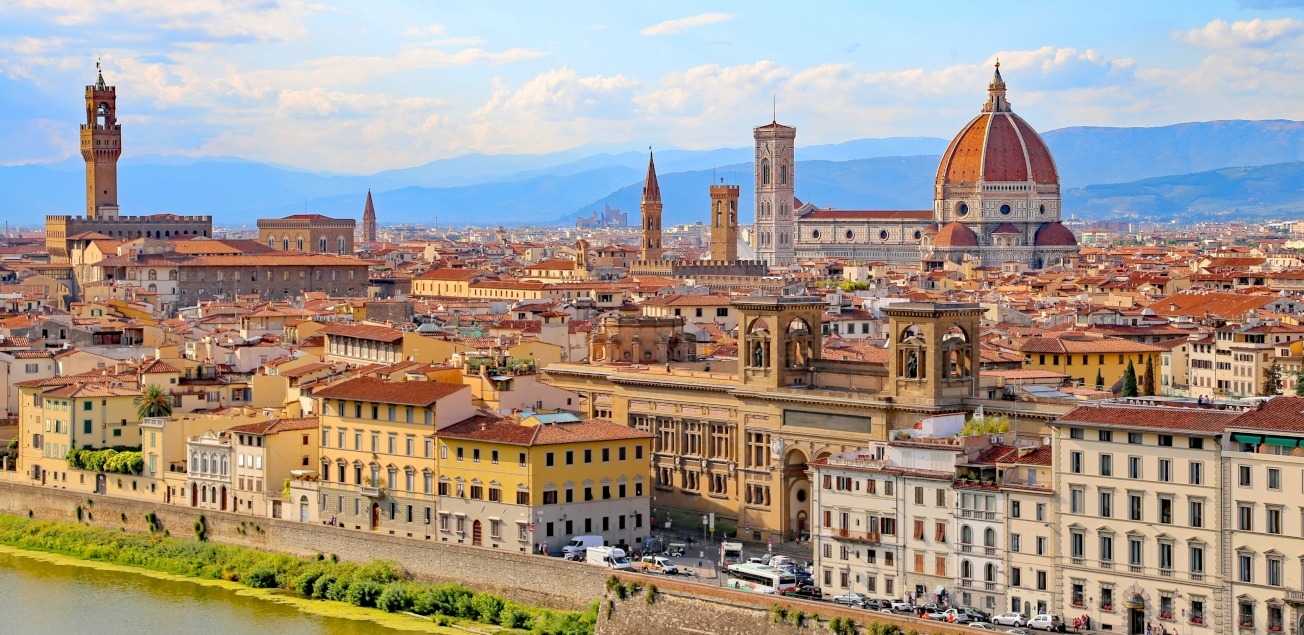
I met Hope Eckert while living in Florence, Italy. Hope’s experience was the more typical of our respective expat lives, as she had settled in Florence after her husband secured a teaching assignment when they decided to move abroad. My husband and I live a more nomadic lifestyle, as our jobs allow us to telecommute and we relocate every 2 – 6 months. After we moved on from Italy to Turkey, then to southern Africa, Hope and I kept in touch, often comparing expat experiences. Eventually, we realized that our stories about the more mundane aspects of living abroad could be useful to other expats, and we compiled an online interview from our favorite topics. I am currently in Namibia, and Hope recently returned to the United States. In the following series of interviews, Hope and I compare how living abroad changed the way we eat, communicate, socialize, and use transportation in our daily lives.
This rather unique Expat Experiences entry is a series of interviews by two long-term travelers. Hope and her husband took a RTW gap year in 2008, and Hope is currently re-establishing her law practice in Albuquerque after returning from life as an expat in Florence, Italy, where her husband worked for a year. Bobbi and her husband are a year into their nomadic expat lifestyle, currently slow-traveling and living throughout southern Africa.

Where and how often did you shop for groceries at home?
Bobbi: KC and I typically shop once or twice a week in the grocery stores. During growing season, we pick up weekly produce baskets from a local organic farm. There’s also a Saturday market nearby where we buy all of our meat and eggs directly from the farmers. Although we emphasize local and unprocessed foods, neither of us likes to cook, and we still eat more pasta with sauce-from-a-jar than we should.
Hope: We usually did one big shopping on the weekends, which was one of our favorite outings and we joked that it was our “date.” Since we’re kinda particular about the food we buy, this usually meant trips to several different stores – Trader Joe’s, Whole Foods, Sunflower…and maybe a normal ol’ grocery. In the growing season we would hit the Saturday market for produce as well as fresh eggs and we’d get as much good stuff from our own garden and trees as our horticultural success that year dictated (usually at least tomatoes, zucchini, peaches, and more herbs than we knew what to do with). One or the other of us would pick up fill-in items during the week on the way home from work.
How has it changed abroad?
Bobbi: We shop almost daily now, for two reasons: First, we’ve decided to (almost!) always walk to the grocery, so we can’t carry much. Second, produce goes bad faster than in the US, presumably because they wait to pick until it’s actually ripe… As a result, we need to eat everything we buy within a day or two.
One thing I really miss is access to organic and farm-fresh foods. We had romantic notions of shopping in old-world style markets, and it was a disappointment to discover that those markets are selling the same agri-industry vegetables as everyone else. As with many things about this lifestyle, though, we’re slowly getting better at finding what we want. Just as at home, we must endeavor to find wholesome food, and I now know it’s not likely to be found at the touristy Mercato Centrale in downtown Florence. I eventually found the monthly organic market in Istanbul by searching English-language blogs, and a side benefit of living in tiny Haenertsburg, South Africa, has been meeting the owners of Wegraakbosch organic farm and dairy, who deliver a whole box of produce and eggs weekly for $7.
Hope: I’m pretty much with Bobbi on this one, although I’d add a third reason we shopped almost daily – it was fun! (at least at first; after a few months of it the novelty wore off). Since we lived up several flights of stairs and walked everywhere, there was really no way to overshop. In addition, the package sizes are much smaller, so you have to shop to replenish your juice or milk more often in any case. It was also difficult to “source” ingredients in Italy if you wanted anything other than Italian, so that would add trips to various places across town to the one place that sold fresh ginger, Japanese ingredients, etc. On the other hand, if it was pesto or pasta you were craving, you had an endless variety at your disposal!
How do you choose places to eat out? Do you eat out more or less than you did at home?
Bobbi: KC and I are not foodies; while we love to stumble upon a great restaurant, we go out more to avoid cooking than to seek out great eating experiences. As a result, we often have mediocre meals because we’re starving by the time we decide to go out and settle for the first place we see. But if we plan ahead, I find we have our best meals when I do a little research on TripAdvisor or travel blogs and forums.
We probably eat out less while traveling than we did at home. I suspect this is because at home, eating out is a large part of socializing with friends. We may be in the minority in that more food-inquisitive travelers (like Hope!) would be taste-testing their way around the world.
Hope: We both love eating out, but we didn’t eat out that often at home because I also love to cook. We’d usually eat out about once a week – special things that are easier to get at a restaurant than make at home – sushi, Thai, Vietnamese, etc. Since we had a semi-gourmet kitchen and everything we needed, I took pleasure in cooking dinner most nights, with Steve happy to “sous chef.” As our kitchen in Italy was a less-fun place in which to try and cook (e.g., if you turn on the oven and anything else at the same time you’d blow a fuse), we tended to eat out more (or at least eat take-out more).
We found what became our favorite places through a variety of means – getting recommendations, reading reviews online, and mostly, just poking our noses into the local places and trying the ones that seemed good – if we were right, they became part of our “go to” list. Unfortunately for us, though, restaurants in Italy don’t get up and running until 8:00 p.m. and later, and as we never really got used to eating at that time, our “eating out” dinners mostly ended up being take-away, in the form of pizzas (often), kebabs (ubiquitous European fast-food), or mediocre Chinese (more often than I care to admit). When all else failed, there was a wonderful rosticceria right on the ground floor of our apartment building (an Italian takeaway place that cooks traditional Italian food). Usually the yummy Italian or special “foreign” food restaurants were relegated to weekend lunch.
How did your cooking habits change?
Bobbi: One of the funniest challenges has been adjusting to short-term rental apartments where, every 4 – 12 weeks, we move into a new kitchen stocked with about 6 utensils and no spices whatsoever. I am grateful for the Egyptian Bazaar (aka The Spice Market) in Istanbul where I met Teslim at the Airfoglu spice shop who vacuum-sealed his special salad dressing, meatball, chicken, and curry spice mixes for me to stuff into my backpack.
One positive change has come about because we imagined that the rest of the world eats better than Americans and have kept their family cooking traditions intact. Given the amount of junk and processed foods available in large grocery stores, I no longer believe this to be entirely true; however, I have noticed that our assumptions inspired us to start cooking almost entirely from scratch, and even though our lazy fall-back is still a bag of pasta, we almost always top it with roasted veggies instead of a jar of pasta sauce.
Even being culinarily-challenged as we are, each country has nonetheless inspired something that we will take home: In Italy, KC ate so much handmade pasta from the homemade-pastashop down the street that I agreed we might want a pasta machine when we get home. (I don’t know what to tell him about the homemade smoked pecorino cheese sauce, though…) In Turkey, I bought a Turkish cookbook and we’ve been using Teslim’s spices to master some truly mouthwatering recipes. In Botswana and South Africa, the braai (BBQ) rules supreme and we’re learning the ropes of cooking over wood (briquettes? South Africans put them in the same category as a cute chihuahua in a pink sweater); our specialty is a lekker loaf of beer bread baked in the coals.
Hope: I tended to cook much less in Italy than I did at home, mostly because it felt more like a chore than fun. I did spend some time trying to “recreate” comfort foods (anything Mexican, New Mexican, or Tex Mex) as well as bake “American” goodies for some nice folks in the neighborhood and my Italian language school classmates (LOTS of zucchini bread!). Some things that were a staple back home (Sunday bbq’s with giant-sized steaks) just weren’t doable at all.
I think one positive bring-back is the idea of not over-buying or over-cooking. At home it seems like we’re always cooking for an army and ending up eating leftovers for days (or wasting food). Since everything here comes in much smaller packages, we tended to just cook what we ate for that meal.
I was surprised, much like Bobbi, at the amount of “junk” and inorganic food here. This is actually a large change since our fist stay in Italy in 2006 where I remember specifically noting that there was very little processed food (and no “specialty” processed food – diet, gluten-free, etc.) to be found. I also naively assumed the produce at the beautiful outdoor markets was organic, though it became clear it wasn’t when I found the one booth actually labeled “organic” (and with prices to match).
Okay, Bobbi, you say you’re not a foodie and then talk about cooking with exotic spices and baking BREAD – over coals no less! I officially dub you a foodie!!!
This rather unique Expat Experiences entry is a series of interviews by two long-term travelers. Hope and her husband took a RTW gap year in 2008, and Hope is currently re-establishing her law practice in Albuquerque after returning from life as an expat in Florence, Italy, where her husband worked for a year. Bobbi and her husband are a year into their nomadic expat lifestyle, currently slow-traveling and living throughout southern Africa.

How well do you speak the language(s) where you’re living/traveling abroad?
Hope: Now that’s a good question! There are times where I think I speak the language (Italian) passably, and other times where I can’t seem to get a correct word out. It’s next to impossible to be objective, but I think one would say that while I absolutely am not fluent, I know enough of the language to communicate most needs and ideas if given enough time and patience. In the past year I have definitely gained an overall understanding of how the language works (verb tenses and conjugations), though I have a far smaller vocabulary than I would like. (And while I theoretically understand the grammar principles, I have nowhere near mastered them, causing me to butcher the language continually).
In order to get to this point, I have been attending various language schools since before we moved here. I started with intro Italian at the local continuing ed course, then went to Bologna for 6 weeks to study at a language school I had discovered on an earlier trip. I continued with infrequent skype lessons with my teacher from Bologna until we moved. Once in Florence, I checked out many language schools, originally starting with one of the more tourist-oriented (and expensive), and eventually settling on a school aimed more at immigrants (and much less expensive). I could see a marked difference in the learning curve of both the younger students as well as students from countries whose languages more closely relate (Spain, France, etc.). As someone used to being at the top of her class, language school was a sometimes frustrating and almost always humbling experience. I hope to try and maintain my language, but it is so much easier to do so when immersion and necessity force the learning process.
Bobbi: Unless it’s an English or Spanish-speaking country (and sometimes even in those!), I don’t speak the language. Historically, when traveling I studied language tapes to learn a few basics before I arrived, and we began that process before leaving for Europe last summer. I soon realized, however, that breaking down an entire household and preparing to live on the road for two years, all while working full time, was probably enough to pile onto my plate, so I dropped the Italian lessons and decided to wing it.
The same has held true now that we’re on the road. I enjoy studying languages and have envied Hope for being in one place long enough to really dig into a language. But unlike many gap-year or RTW travelers, KC and I have not planned our travels in advance and we work fulltime. Much of our free time, which otherwise might be available for studying languages, is spent working, researching and selecting our next destination, and arranging plane tickets, housing, and internet connections. Pretty quickly, I gave myself permission to limit my foreign language skills to learning numbers, greetings, and the polite words (please, thank you, and I’m sorry).
How has your ability to speak or not speak the language affected you?
Hope: Honestly, I think my language skills have caused me the most difficulties this past year, both practically and emotionally. While I can speak the language well enough to order lunch or take care of mailing a package, higher level and difficult conversations elude me. In the States talking and (usually) being understood were a given and not something that (usually) required undue effort or emotional toil. Much to my dismay, In Italy, while there were folks who could tell I am a reasonably intelligent person just having difficulty communicating my thoughts in Italian, there were a few who assumed I was an idiot. I can think of many times I knew what I was talking about, but because I did not communicate in fluent Italian the person to whom I was speaking ignored my communication, told me things you would tell a child, or was just downright rude (i.e. hung up the phone on more than one occasion). I think those were the times I felt the most isolated and “down” in Italy. It really got me thinking about the difference between our intellectual and communication abilities, and thinking about folks like Helen Keller and Stephen Hawking, taxi drivers in NY who were engineers or doctors in their home country…..
Bobbi: I think this is probably one of the biggest differences between Hope’s long-term stay in Florence and my shorter stints in various countries. I’m primarily living in a tourist’s world: When we rent apartments, they’re furnished and we don’t have to hook up utilities. I don’t have to navigate the immigration system for a residence permit or set up a bank account in a foreign language. Language barriers are mere inconveniences to KC and I, and usually make for a funny story once the moment has passed.
Share a story where language has either created a problem or helped you in the past year
Hope: I think one of the gifts I was given over the past year was to have two very kind and intelligent (though very different) Italians with which to do language exchanges. Language exchanges basically consist of getting together and talking in one language part of the time and the other for the remainder, with each duet deciding how formal, how much correction, etc. they want.
While the ability to speak English was not always a benefit here, it was a valuable commodity to some. I found one of my language exchanges (a lovely young women who both teaches Italian and works for an agency that helps companies moving folks to Italy [many of whom speak English]) through a forum on “expat blogs.” I had actually almost given up by the time I found her as my previous attempts were somewhat comical. A couple resulted in no-shows and one in meeting with a gentleman who (due to my lack of understanding of Italian names) I thought was going to be a woman (and my gut told me he was interested in more than speaking English). Meeting my other language partner happened more organically – he swims at the same pool I did and is a friendly/outgoing person (to date he is the only person I have ever had a conversation with at that pool). He is an older gentleman and a retired lawyer, so we had a commonality to start and discovered a shared enjoyment of discussing politics and culture.
Honestly, he did most of the talking, but it was wonderful to sit and actually have a philosophical conversation with an Italian who, despite my terrible language skills, treated me as an intellectual equal.
Bobbi: Possibly the closest I come to dealing with “real life” in a foreign language is a trip to the post office.
One day in Turkey I visited the post office to mail some souvenirs. The entire episode was a perfect demonstration of language barriers, as I first stood in the wrong line since I couldn’t read the signs above the counters, then I got a grumpy postal worker who refused to mail any of my boxes and I wasn’t able to communicate effectively to ask for an explanation.
The fact that there may not have been an explanation is in itself a lesson in foreign language difficulties: I took the boxes to another postal branch the following day and mailed everything without any problems. So why did the first clerk give me such a hard time? I can take a guess from an experience I had at home years ago: I stood in line behind a foreign tourist and when my turn at the counter came, the clerk was complaining, “if they’re going to visit our country then they should speak our language.” So maybe I just had a very ordinary experience in the life of a traveler who can’t speak her host country’s language.
This rather unique Expat Experiences entry is a series of interviews by two long-term travelers. Hope and her husband took a RTW gap year in 2008, and Hope is currently re-establishing her law practice in Albuquerque after returning from life as an expat in Florence, Italy, where her husband worked for a year. Bobbi and her husband are a year into their nomadic expat lifestyle, currently slow-traveling and living throughout southern Africa.

How do you keep in touch with friends and family from home?
Bobbi: I have a handful of close friends, including my sister, at home; my biggest concern about traveling for an extended time was losing my connection to them. I was right to worry; I really do miss the joy they bring to a simple walk or cup of coffee. One way I try to counter this feeling of isolation is to stay active on social media. I used to avoid Facebook, checking it once a week to say happy birthday to distant friends, but otherwise finding it too much of a drain on my time. Now, though, monitoring Facebook and a few favorite blogs gives me a sense of connection to family and friends. Emails mean a lot to me as well, but I know from experience that those at home are still as busy as I was a year ago, and while I have more down-time these days, they don’t. So I periodically send postcards to let them know they’re in my thoughts.
Hope: I have to say, now that I just got home, it feels a little surreal answering these questions in retrospect. Part of me feels like I was gone forever, but part of me feels like I never left. But, to get back to the actual question – and I am not a paid spokesperson, but the answer is SKYPE, SKYPE and SKYPE (with an occasional snail-mail card thrown in there for good measure). The thing that was so great about Skype was that not only could I video chat with all my friends and some family, but we could use Skype as an old-fashioned phone to call folks not in the computer-age (like my mom-in-law) for pennies a minute. I also used it to make tons of calls to arrange internet service, buy a car, and many other things when we were planning our move back to the States. I think I’ve shared this story with you, Bobbi…. When I was a kid (WAY before people had computers, let alone Skype), my grandmother used to pretend she could see me on her “magic TV phone” when we would talk. It was such a fantastical notion at that time!
Describe your successes (or difficulties) in making friends/socializing.
Bobbi: While traveling slowly has allowed us to meet many more people than ever before in our past travels which lasted 2-4 weeks at most, two experiences in this first year of traveling stand out. My friendship with Hope is the first; although we met because I read and enjoyed her blog while I was visiting Florence, we have maintained a strong friendship because we have other things in common in addition to a love of travel. The second is a group of friends who evolved during our stay in Gaborone, the capital of Botswana. KC and I rented an apartment from a couple near our age and became friends with them. Simultaneously, we began meeting a combination of locals and expats through InterNations website for informal social activities like a game drive at the local wildlife park, an outdoor concert, or an Easter barbecue. The group grew even after we moved on to South Africa, and we even recently reconnected for a weekend at Sun City, a South African mini-Vegas.
Hope: Wow, this one’s really tough. I think overall, it was much more difficult making friends with “natives” than I thought it would be. I think part of this is that the place I lived (Florence) is pretty much known as being somewhat closed, and the other is that I could not communicate in Italian on a level that would facilitate people really getting to know me, my sense of humor, my more profound thoughts, etc. It seems like I fell into the pattern I observed with most other expats – making friends with each other. The interesting thing is, the expat community anywhere is a tiny fraction of the entire community, already severely narrowing your options for friendships. It seems that at least some acquaintances, lunches and coffees were based simply on the fact that we were both Americans. Once in a blue moon (I’m talking to you, Bobbi), there would be real, deeper connections discovered and formed, but to be honest, in the year I was away I did my best to make many acquaintances, but only made a couple of real friends.
Can you give advice on making social connections while traveling/living abroad?
Bobbi: When we’ve traveled for short periods and only spend a few days or a week in each city, I’ve often made fun connections with other travelers I’ve met in our hotel restaurant or on a tour. But if you’re on a slower schedule like us for the past year, you may have time to broaden your horizons just a bit.
A few ideas come to mind which have allowed us to mingle with – if not always native-born locals – at least some English speakers who are living in your area.
- Embassies and government-sponsored organizations are a great source of social events where, even if you’re only in town for a few days, you can drop in and enjoy an evening of chatting in your native tongue. The American consulate may host a weekly brunch for American citizens in your city. Or in Gaborone, Botswana, the French Alliance (sponsored by the French government) puts on concerts, classes, and even a Bastille Day ball – all open to the public and hugely popular with locals and expats alike.
- Internations.org has become one of my favorite organizations this past year. It’s literally all over the world and each city has an “ambassador” who receives a top-level membership in exchange for organizing monthly get-togethers at a bar or restaurant. They send reminders to attendees to be nice to the new members, and having attended events in three countries now, I have never felt awkward or unwelcome. In bigger cities, members also create specialty groups for anything from hiking to attending symphonies; in Istanbul, there were literally 3-5 events nightly to choose from if you followed all the specialty groups. One of the best things about InterNations is its appeal to all nationalities; locals seem to love it as much as expats, so it’s also been a great way to meet natives who speak English, not just other travelers or expats.
- Google for the English-language newspaper in your city. Expats have a vested interest in finding other English speakers, so they’re diligent about posting where you can find a movie in English or the schedule for the weekly language exchange.
Hope: Wow, Bobbi, I’m impressed – that’s a pretty good go-to list for expats! The only addition I would make is to try and find a language exchange partner – people all over the world want to improve their English, so it’s a great way to get to know and spend time with a local, as well as improve your language skills. While you need to be cautious, as with any unknown, expatsblog.com and the newspapers Bobbi mentioned usually have ads for language exchanges, or you can run your own. One of my two language partnerships came about by my answering such an ad (though the first time I answered an ad I believe I found a gentleman who may have had more than language on his agenda), and the second occurred organically from a chance conversation at a pool. These were the two closest connections I made with Italians, plus I learned some great idiomatic expressions!
What do you do for entertainment that’s different from your typical weekend or evening plans at home?
Bobbi: Without friends nearby, we often stay in more than usual. To pre-empt any homesickness that might come with missing the newest Bond movie (KC’s a big fan) or not being able to understand the evening news in Korean, KC and I planned carefully to avoid feeling deprived of our usual comfort-habits while on the road. For example, we bought a bluetooth Bose Soundlink speaker so that we have quality sound when we listen to music, stream NPR news over breakfast, or watch movies on the laptop. And we subscribe to TunnelBear, a VPN service that permits access to accounts normally only available in the US (Netflix, Pandora, and Amazon movie rentals) (thanks for the recommendation, Hope!).
Hope: Before Italy, we were pretty much homebodies. Usually we would throw a party or have a bbq if we wanted to be sociable on the weekends (forcing everyone else to come to us). One thing we definitely did more in Italy was to get out of the house! This was in part because we didn’t love our apartment the way we love our house, but also because there was also always so much going on right outside our door. In New Mexico if you want to go out to happy hour or a wine festival, you need to drive there, forcing one person to be the designated driver. In Italy, since we had no car and everything was within walking distance, we could go to “apperitivo” (buy a drink, eat a buffet free – great budget dining tip) or a festival and have a glass of wine sans concern. For festivals and festivities in general, we only had to drag ourselves down 3 flights of stairs instead of into a car, driving in traffic, finding parking, etc. We’re trying to maintain the “going out more” lesson Italy taught us. And…in all honesty, we used tunnelbear and hulu to watch a lot of American TV…
This rather unique Expat Experiences entry is a series of interviews by two long-term travelers. Hope and her husband took a RTW gap year in 2008, and Hope is currently re-establishing her law practice in Albuquerque after returning from life as an expat in Florence, Italy, where her husband worked for a year. Bobbi and her husband are a year into their nomadic expat lifestyle, currently slow-traveling and living throughout southern Africa.
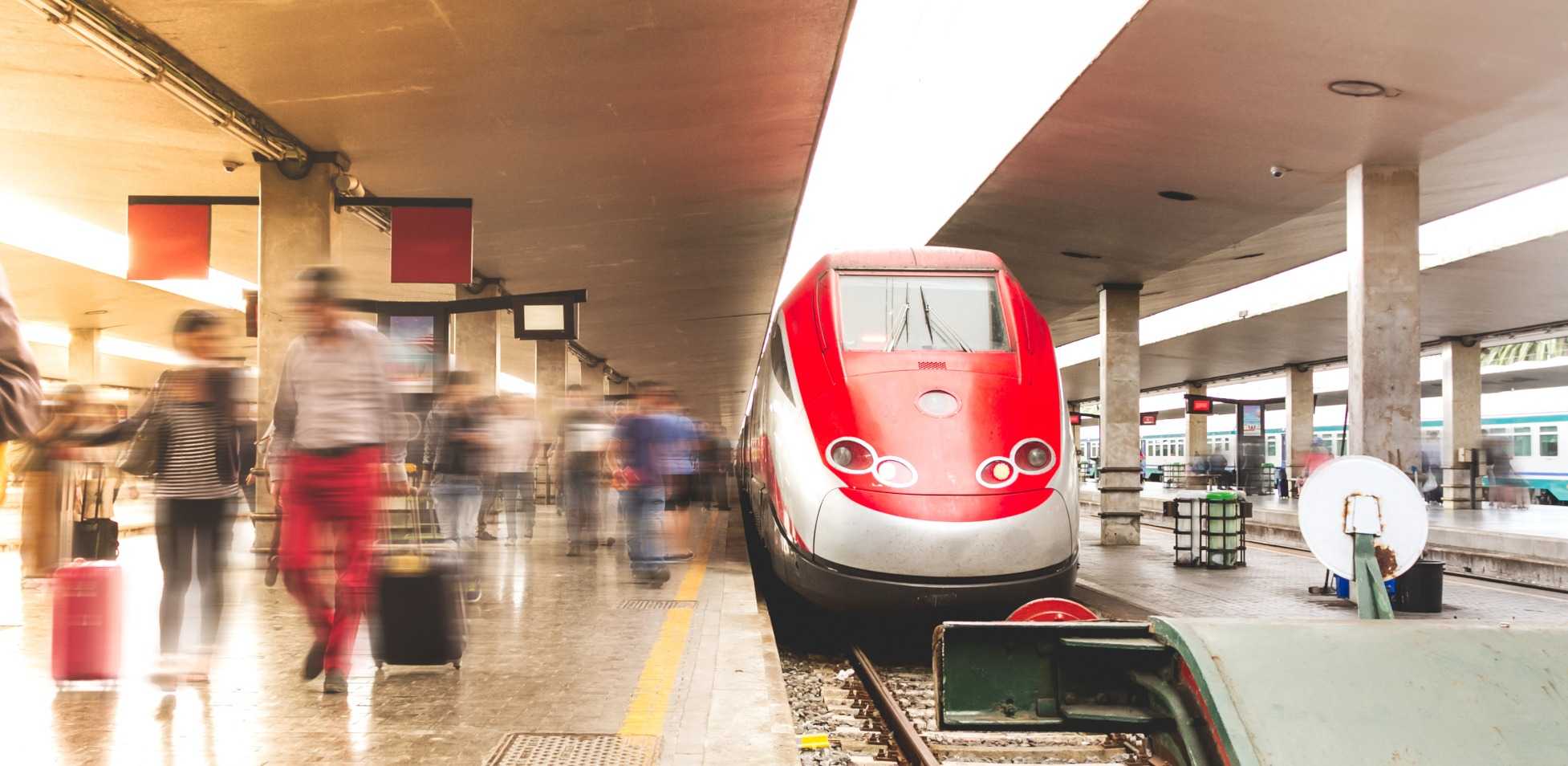
What was your primary mode of transportation at home?
Hope: I’d like to say “my feet” but I’d be lying. While I was an avid runner, there were very few places I could get to by foot at home. I would walk to Walgreens and a small grocery, but even that was a 4 mile round trip. Honestly, like most suburban Americans, I drove – everywhere, all the time.
Bobbi: Similar to Hope, we bicycled or walked around town but we lived in a small rural farming village, so we drove any time we left town.
List the methods of transportation you’ve used since leaving home.
Hope: It’s been an interesting experience not having a car and not driving for an entire year. I would say that in-town I walked 95% of the time, using the bus only if it was raining, very late at night, or I was going somewhere over 3 miles away. For trips out of town it was always a train (my all-time favorite mode of transportation, outside the U.S. that is). Other than when it was 100 degrees out, I really didn’t miss having a car. Actually, I think a car would be more of a hassle in a city like Florence – it is next to impossible to find parking, difficult to navigate, and there are many areas of town (the “forbidden zone”) that if you drive into you will get an obscenely high fine mailed to you. Walking always seems to work, though if I had a busier schedule (i.e. real job), I might not appreciate the 30 minutes across town or to school.
When we traveled in Italy and Europe we took the trains and I love them because you get to travel much more leisurely than on a plane (no security checkpoints, etc.) and see beautiful scenery along the way. You can also move around and hang out in the bar/café car if you so choose. Trains are also a good place to have interesting conversations with other passengers!
Bobbi: We’ve done everything from climbing into kombis (vans that run a fixed route and you can hop on/off along the way) – also known as taxis in South Africa and dolmus (“stuffed cabbage”) in Turkey – to riding a camel in cheesy tourist style around the Pyramids in Egypt. In big cities, we walk or use the metro.
We rented a car in the Dolomites of northern Italy so KC could get himself to trailheads for climbing where the local buses didn’t go. We’ve also rented bicycles or a car for a day to explore cities or regions on our own schedule. We take shuttles, trains and airplanes for day trips or long weekends. I’m with Hope: trains are my favorite. Talk about easy traveling!
While Europe‘s public transportation is excellent, Africa’s infrastructure is limited and we intended to do quite a bit of camping to see game parks, so we bought a used Toyota Surf (a 4×4). To save our fuel budget and to maintain the good exercise habits we established in Europe, we only drive when walking or bicycling isn’t practical.
Share a good transportation story or tip
Hope: For the best seats, friendliest experience and all around positive bus ride, carry a baby or a pet.
I have to admit one of the reasons I avoided the buses was not only because I liked walking, but I really dislike riding the bus. The buses are usually PACKED, you get crushed by people, you need to pay attention to your belongings and it is often HOT. I was also frustrated at what (to me, from my cultural perspective) seemed like discourtesy – no one gave up their seats to older folks, not even spry teenagers. Overall, bus rides reminded me of the things I didn’t appreciate about Italy, so avoiding them was a good psychological strategy.
However, the caveat to everything I have said is folks who have babies with them. Babies are cherished and beloved beyond belief in Italy (and therefore on the bus) – and if you have one, you will get not only a seat, but sympathy, instead of scorn, when your baby starts wailing (apparently babies don’t appreciate heat and crowds either). Only slightly behind babies in the love-fest scale are dogs, which also get special attention and treatment. I was very surprised to find that even cats rank. The time I had to take my cat to get her official travel documents across town, I got more positive attention on those bus rides than in an entire year. People talked to me on the bus (a first – and last), ooohed and ahhhhed over my cat, and generally seemed happier and more friendly than I had grown to expect.
Bobbi: Since I don’t have a baby or a cat, I, too, avoid buses. Mostly because I’m afraid I’ll miss a stop and get lost… My favorite transportation story goes back a few years to a month-long trip in Venezuela.
Background: Venezuela’s official exchange rate is so terrible that everyone trades on the black market. Although it’s technically illegal, even the Customs official at the airport pointed us to a guy we could talk to.
Back to the story. We’d taken a 10-hour overnight bus from Ciudad Bolivar to San Francisco, a small Pemon Indian community near Roraima, the mountain we wanted to climb.
We got off the bus at 7 am, loopy from lack of sleep. No sooner had we set down our packs when a chipper official with a walkie-talkie and a badge around his neck materialized, shook ourhands, and said, ¿Tienen un guia? (Do you have a guide?)
No, señor. Conoce a algiuen? (Do you know any?)
Si. Vengan. Ahorita hay una. (Come with me. Here’s one now!)
And sure enough, we followed the guide home, made a deal, and agreed to meet in 2 hours. We hadn’t changed money on the assumption that we could pay for a guide in dollars, but the Pemon don’t have any use for gringo greenbacks (I guess the dollar isn’t king everywhere after all). The government guy suggested we go to Santa Elena (a bigger town 70 km away) for change, and assured us we could be back easily in 2 hours. Well, of course, 90 minutes later the entire village was now waiting for the very late bus.
Eventually, the government official (“Mr. G.” by now) flagged a pickup truck and we hopped in the back. But it had started to rain and we saw the bus trundle into view behind us, so we pounded on the truck cab to make it stop and we jumped out. When the bus pulled up, we squeezed in along with the rest of the beleaguered passengers.
At some point, it became apparent that we’d been judged a tad soft in the head, because Mr. G accompanied us ALL THE WAY TO TOWN, found us the best black market exchange rate we’d gotten to date, flagged a taxi and negotiated the rate down by an extra $4, and stopped for a 6-pack. KC and I shared a beer (remember we haven’t brushed our teeth yet much less eaten breakfast) while Mr. G and the taxi driver polished off the rest on the way back to San Francisco, stopping for 2 pee breaks in 43 miles.
And that’s how I came to my personal record: a long-distance bus, a local bus, a taxi, and hitchhiking, all under two hours. With beer for breakfast.
Advertisement
About Bobbi Hartwell
Bobbi Hartwell is a freelance legal researcher and software consultant who lives anywhere she and her husband can find an internet connection. Currently she is based in Swakopmund, Namibia; she and her husband discuss their digital-nomad lifestyle on their blog.
Article topics
Related articles
It has always been you, Milano!
For InterNations member Arushi, moving to Milan had been a long time coming. But her move to the city or her dreams wasn’t always easy, especially while having to master the Italian language. Read Arushi’s story to learn more about her move to Milan!
Five Things People Will Say When You Tell Them You’re Moving Abroad
Telling your friends and family that you are moving abroad can be an interesting experience. Some will be thrilled for you while others may simply not understand why you want to become an expat. Here are some common reactions to telling your loved ones that you’re changing your address — in a big way.
From Adventure Seeker to True Romantic: What Kind of Expat Woman Are You?
Though every expat’s individual journey is unique, someone else might have traveled the same path before. Let’s take a look at what some expat women might have in common. Do you recognize yourself in any of these profiles? And do these stories resonate with you — maybe even regardless of gender?
Stuck in Peru: How COVID-19 Delayed Our Moving Plans
InterNations member Chris and his wife had solid plans of leaving Peru to start a new life in another country. When the COVID-19 pandemic reached the country, everything was put on hold and even visiting family in the UK became impossible. Here, Chris tells us how their plans changed.
These 7 Countries Offer the Best Environment & Climate
Discover where you should go if you’re looking for a great climate and environment according to the 2024 Expat Insider survey.
